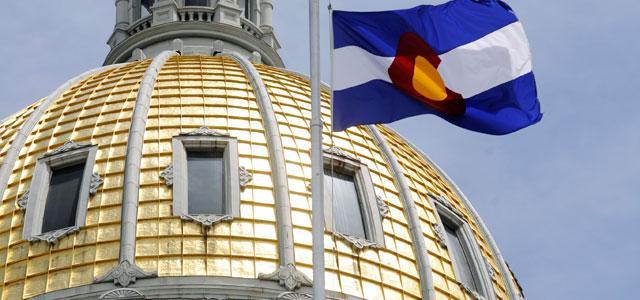Last Sunday, candidates who had already begun their campaigns for Colorado’s 2018 state elections received a rude awakening when news broke that the reach of a new campaign finance law, thought only to apply to candidates in off-year school board races, went far beyond what was intended.
Previously, candidates running to serve on school boards in counties throughout the state needed only to report their fundraising and spending numbers quarterly. However, because of that framework, donations that were given to school board candidates in the final days of an election were not reported until after the election. As a result, lawmakers who were frustrated by what they perceived to be a loophole in the state’s campaign finance laws, acted quickly to ram a new law through the General Assembly. The law now imposes the same reporting and disclosure requirements of elections for higher state offices on school board races, which occur in off-years.
In their rush to hurriedly pass this bill, legislators neglected to notice that the language in the measure accidentally triggered the same requirements for legislative and statewide candidates running in the 2018 election. Now, 30 days before the 2017 school board elections, candidates running for state positions up to and including the governor’s office are being forced to report all campaign contributions of $1,000 or more within 24 hours on a daily basis – even though their primary is not for another eight months, and the general election is still over a year away.
After the announcement from the Secretary of State’s office that candidates running in the 2018 election were bound by the same reporting requirements, many legislators were quick to express their frustration. Even legislators who sponsored the original bill attempted to distance themselves from the bad press surrounding the law, saying that “it was only our intent to deal with the school board elections,” and that the “reporting requirements are cumbersome enough without what the new law is requiring campaigns to do.” This would appear to be another instance of politicians needing to pass a bill to find out what its consequences are.
Contrary to what advocates for greater regulation of political speech would have you believe, campaigns and committees at both the state and federal level already turn over an incredible amount of information regarding their donors. On the federal level, all spending that specifically calls for the election or defeat of candidates and broadcast ads that mention a candidate within 30 days of a primary or 60 days of a general election (known as “electioneering communications”) trigger some form of disclosure. After the 2015 school board election, advocates of the Colorado bill argued that more campaign finance disclosure would leave voters more informed, and better able to make a decision come Election Day.
Disclosure is routinely sold as a tool intended to inform voters of the sources of major financial support for candidates, campaigns, and independent groups. All information collected by these entities is reported to the government and stored in searchable online databases. In theory, these websites should ease the process for those voters who wish to search and access this information, but, in practice, this is often not the case. Overreaching reporting requirements make it more difficult for voters to fish out useful bits of information regarding major funders from the sea of data about the giving of small donors. Now, because of the bill’s loose language forcing state-level candidates running in the 2018 election to comply with requirements aimed at those running for local office, voters who were primarily interested in learning more about the funding of school board candidates may be burdened with digging through data on candidates that aren’t even on the ballot this year.
Advocates for greater regulation of political speech tout the benefits of “transparency,” but overly broad disclosure requirements are not the bastion of a more open and competitive democracy. These laws are peddled as a tool for voters to be better informed and engaged in elections, but they frequently do a better job of misleading the public. Often, compulsory disclosure data does not hold individuals and organizations accountable for their actions, but rather facilitates ad hominem insults and chills First Amendment rights to freedom of speech and association.
As this bill was passed so hastily, with lawmakers not fully understanding its consequences, candidates who are campaigning for an election that is still a year away are being forced to grapple with additional, onerous reporting requirements. Making matters worse, if affected candidates inadvertently fail to comply with the disclosure requirements imposed by this new law, they can be penalized with fines. For now, until the Colorado General Assembly can convene, agree on clarifying language, and pass a bill to that effect, candidates and voters will be left to suffer the consequences.
Obviously, the unintended effect of Colorado’s law triggering daily reporting requirements for state candidates running in next year’s election came as a shock to the legislators who sponsored this bill, but this situation underscores a core issue with the regulation of political speech in general. When lawmakers and unelected bureaucrats attempt to control every aspect of our political process, they end up creating new, unnecessary hurdles that campaigns are forced to grapple with, hindering their ability to connect with voters and share their message.














